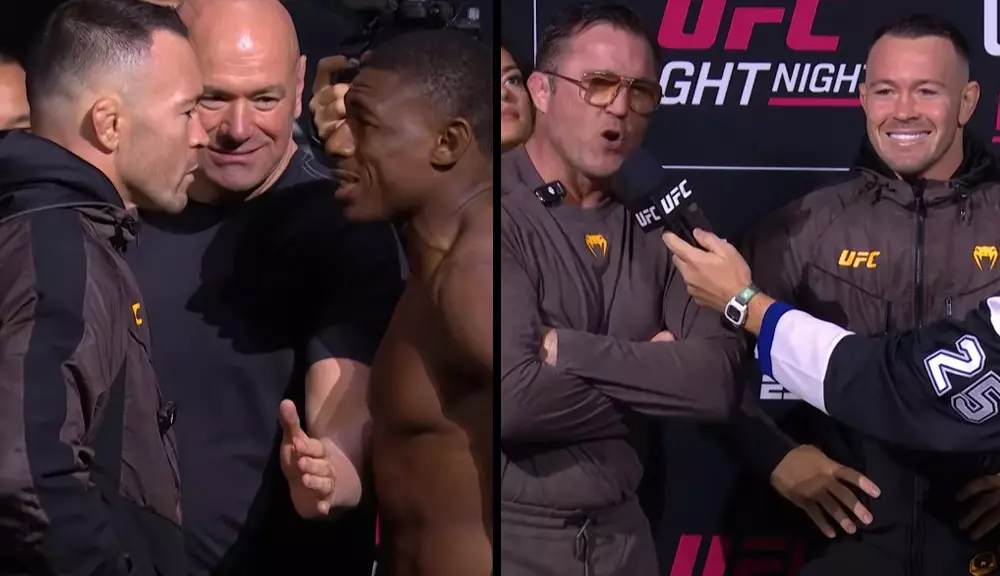The chaotic world of Mixed Martial Arts (MMA) often intertwines with a vivid display of personalities, and few are as pronounced as Chael Sonnen. His recent engagement with Colby Covington post-fight at UFC on ESPN 63, where Covington faced Joaquin Buckley, highlights this theatrical element. In a bout that ended with adoctor stoppage due to a cut above Covington’s eye, Sonnen’s post-fight remarks attempted to wrap a silver lining around a deeply disappointing outcome for Covington. Despite the loss, Sonnen painted the fight as a heroic struggle, claiming the tides were turning in Covington’s favor and suggesting the performance was worthy of a bonus.
Sonnen’s words are a classic example of the art of salesmanship in sports commentary. His intention appears not just to console Covington but to maintain his own brand of brash optimism. However, such commentary can distort the reality of performance in the Octagon. For athletes like Henry Cejudo, who critically analyzed Sonnen’s speech, there’s a vital need for authenticity in the sport’s narrative. Cejudo characterized Sonnen’s comments as a form of gaslighting, challenging the notion that Covington deserved accolades for a performance that led to a stoppage loss. Cejudo asserted that true sportsmanship involves an unvarnished assessment of performance, a necessity often compromised for the sake of narrative flourish.
The Hypothetical Nature of “Tides Turning”
Sonnen’s assertion that the match’s momentum was shifting raises questions about the validity of such claims. In combat sports, momentum is a fickle beast, one that can change in a heartbeat—but it must be supported by tangible action within the fight. Referring to Sonnen’s remarks, Cejudo underscored that the fight was objectively unfavorable for Covington at the point of stoppage. Cejudo’s critique resonates not only as a challenge to Sonnen’s rhetoric but also as a call for honesty in commentary that fans and fighters alike deserve. By suggesting that Sonnen’s narrative might merely be a hypnotic pep talk, Cejudo reflected the sentiments of a pertinent portion of the MMA community that values transparency over fluff.
This dynamic speaks to a broader phenomenon within the MMA landscape, where the blending of performance and personality creates a unique spectacle. While Sonnen’s role as a cheerleader for Covington after an abrupt ending may serve to entertain, it underlines the precariousness of truth in competitive sports commentary. Enthusiastic boosters like Sonnen often provide a refuge for fighters facing the media storm after a setback, but their interpretations can mislead fans about actual fighter capabilities and trajectories. Cejudo’s biting critique stands as a reminder that while entertainment is essential, the credibility of commentary must be upheld.
In the end, the colorful nature of personalities in MMA brings both excitement and complexity to the sport. As figures like Sonnen deliver their flamboyant analyses, the importance of an honest appraisal must not be overlooked. MMA is not just a battle of strength and strategy; it’s also a showcase of narrative and persona. Balancing the two is essential for maintaining the respect and authenticity that the sport deserves—something both fans and fighters should prioritize as they engage with the unfolding drama inside the cage.

